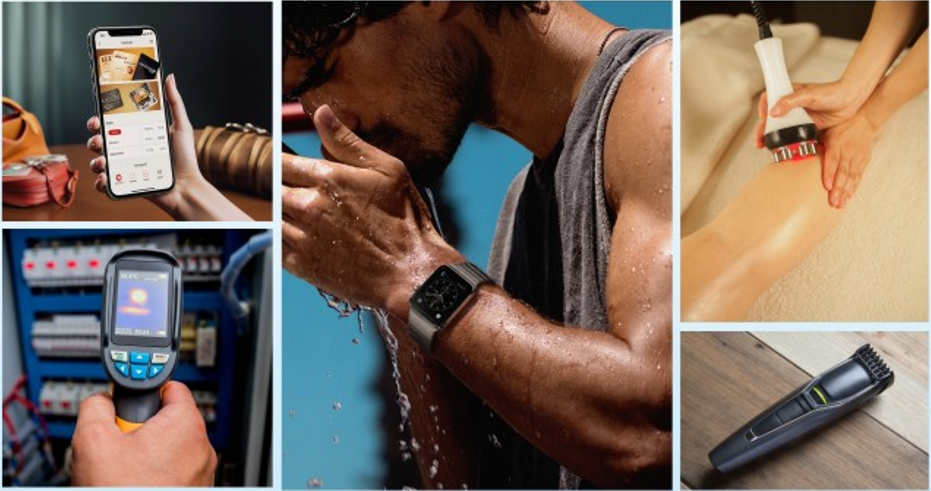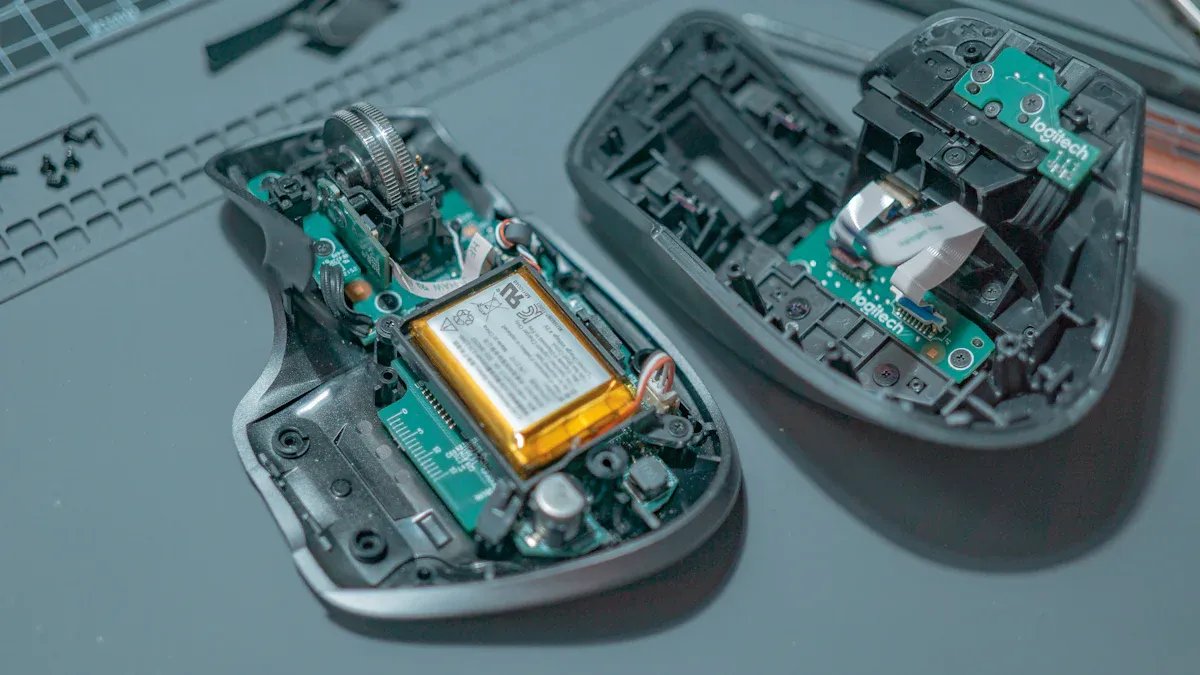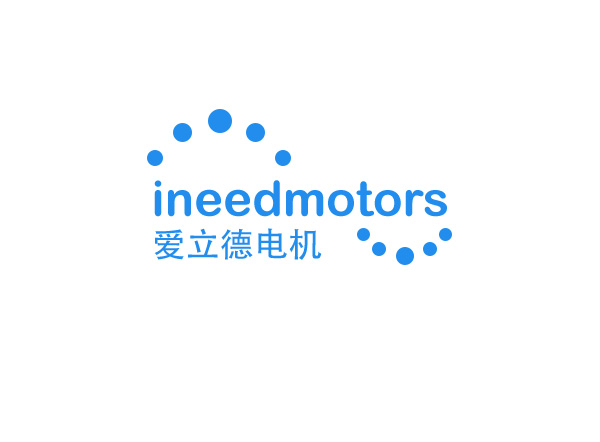Discover the Role of Tiny Motors in Today’s Smart Devices

You use smart devices every day, but have you ever wondered what makes them vibrate, move, or respond to your touch? Tiny motors power many of these features. These small yet powerful components help smartphones buzz, smartwatches tap, and tablets provide feedback. Over the past decade, the demand for compact and efficient motors has grown as electronic devices get smaller and more advanced. Tiny motors support the miniaturization of parts in everything from phones to smart home gadgets.
Key Takeaways
Tiny electric motors are essential for the functionality of smart devices, enabling features like vibration alerts and camera adjustments.
Miniature motors are compact and energy-efficient, allowing for longer battery life in devices like smartwatches and fitness trackers.
Vibration motors enhance user experience by providing tactile feedback, making interactions with devices more intuitive and engaging.
The demand for tiny motors is growing, with advancements leading to more powerful and efficient designs that fit into smaller spaces.
Custom solutions from companies like INEED ensure that motors meet specific needs across various industries, from healthcare to consumer electronics.
What Are Tiny Motors?
Tiny Electric Motors Explained
You might wonder what makes your smartwatch vibrate or your phone camera move so smoothly. The answer lies in tiny electric motors. These small devices power many features in your favorite gadgets. Tiny electric motors fit into spaces as small as a few millimeters, making them perfect for smart devices. You find them in smartphones, wearables, medical tools, and even robots.
Here is a quick look at what sets tiny electric motors apart:
Feature | Description |
|---|---|
Size | Mini motors are compact, allowing them to fit into small devices. |
Power Consumption | They consume less power, making them suitable for battery-operated gadgets. |
Precision | These motors provide accurate control over speed and movement. |
Applications | Used in robots, medical tools, and various smart devices. |
Tiny electric motors help you enjoy features like haptic feedback, camera focus, and smooth movement in drones. Their design supports the miniaturization of modern technology. You benefit from energy-efficient devices that last longer between charges.
INEED stands out as a leading provider of micro motors and vibration motors. The company creates solutions for telecommunications, healthcare, robotics, and more. INEED’s expertise ensures you get reliable and efficient motors in your devices.
How Tiny Motors Work
Tiny electric motors convert electrical energy into mechanical motion. When you use a device, the motor receives electrical energy through its terminals. The current flows through windings inside the motor, creating a magnetic field. This field interacts with magnets, causing the rotor to spin. The spinning rotor produces movement, which powers features like vibration or camera adjustment.
The main parts of tiny electric motors include:
Bearings: Support the rotor and allow smooth rotation.
Stator: Generates a rotating magnetic field.
Windings: Coils that create the magnetic field.
Commutator: Maintains torque direction in brushed motors.
You find different types of tiny electric motors in smart devices. Miniature dc motors offer reliable performance in small gadgets. Coreless dc motors provide lightweight and energy-saving options for hearing aids and drones. Stepper motors deliver precise movement for robotics. Miniature dc motors also appear in camera modules and wearables. Micro motors, such as those from INEED, give you the advanced features you expect in today’s technology.
Types of Micro Motors
Miniature DC Motors
Miniature motors play a vital role in smart devices. You see these small motors in electric curtains, massage chairs, and smartwatches. Miniature dc motors convert electrical energy into mechanical movement. You benefit from their high starting torque and wide speed range. These motors offer simple control and fit into many compact devices.
Feature | DC Geared Motors | |
|---|---|---|
Mechanism | Converts DC electrical energy to mechanical energy | Incorporates a gear reduction mechanism |
Control | Simple control | Precise speed control |
Torque | High starting torque | Higher torque due to gear reduction |
Speed Range | Wide speed range | Limited speed range due to gearing |
Cost | More expensive | Generally less expensive |
Applications | Various mechanical devices | Applications requiring high torque and control |
You find miniature dc motors in smart home products, medical equipment, and wearables. These small motors help electric wheelchairs move and smart toilets function. INEED offers a wide range of micro motors, including compact dc motors and nanomotors, designed for different needs.
Device Type | Examples |
|---|---|
Smart Home | Electric curtains, smart toilets, floor cleaning robots |
Medical Equipment | Massage chairs, electric wheelchairs, medical pumps |
Smart Wearables | Electric curling irons, massage instruments |
Vibration Motors (ERM & LRA)
Vibration motors add tactile feedback to your devices. You feel vibrations in phones, gaming controllers, and smartwatches. Two main types of miniature motors provide this function: ERM (Eccentric Rotating Mass) and LRA (Linear Resonant Actuator).
Feature | ERM Motors | LRA Motors |
|---|---|---|
Power Consumption | Typically consume more power due to rotational motion. | More efficient, consumes less power with precise vibrations. |
Control Flexibility | Offers a wider range of vibrations, easy to control. | Provides finer control but limited to specific frequency range. |
Response Time | Faster response upon activation. | More durable for extended use, slower response. |
Noise Characteristics | Produces more noise and transmits vibrations. | Produces smoother vibrations with minimal noise. |
Application Areas | Common in cell phones, wearables, game controllers. | Used in medical devices, touchscreens, wearables requiring subtle vibrations. |
You experience haptic feedback in smartphones for alerts, realistic sensations in gaming controllers, and notifications in smartwatches. INEED’s micro motors include both ERM and LRA types. You can request custom vibration patterns for your device.
Tip: Vibration motors also enhance interaction in tablets, TVs, and fitness trackers.
Brushless and Coreless Motors
Brushless micro motors and coreless miniature motors improve efficiency and durability in smart devices. Brushless motors use permanent magnet rotors and electronic control. You get longer lifespan and higher efficiency. Coreless motors feature hollow rotors made of copper windings. These small motors are lightweight and deliver precise performance.
Motor Type | Key Features | Benefits for Smart Devices |
|---|---|---|
Brushless | Uses a permanent magnet rotor and electronically controlled stator windings. | Longer lifespan, higher efficiency, reduced wear |
Coreless | Features a self-supporting, hollow rotor made of copper windings. | Lightweight, low inertia, precise performance |
You find coreless miniature motors in fitness trackers and smart rings. Their compact size helps extend battery life. Brushless motors provide smooth operation in smartwatches and other wearables. INEED offers custom solutions for stepper and precision stepper motors, meeting your specific requirements for speed and torque.
Note: You can choose from a variety of small motors, including stepper and nanomotors, to match your device’s needs.
Tiny Motors in Modern Technology

Smart Devices and Wearables
You interact with smart devices and wearables every day. Tiny electric motors make these experiences possible. When your smartwatch vibrates for a call or your fitness tracker nudges you to move, you feel the work of miniature motors. These small motors fit into the tightest spaces, yet they deliver powerful feedback.
Vibration motors in smartwatches alert you to calls, texts, and app notifications.
Navigation becomes easier with subtle vibration cues guiding you.
Fitness trackers use vibrations to remind you to stay active and notify you about health updates.
You celebrate milestones with a gentle buzz when you reach your fitness goals.
Vibration feedback from tiny electric motors makes your interaction with wearables more intuitive. You get immediate and clear responses, which improves your experience.
INEED’s LRA vibration motor solution stands out in wearable technology. LRA vibration motors provide quicker response times and better power efficiency than other types. You notice more precise and intricate vibrations, which enhance tactile feedback. Unlike ERM motors, LRAs generate linear vibrations, giving you a refined and responsive haptic experience. This precision allows for complex vibration patterns, making your smartwatch or fitness tracker feel more engaging and interactive.
Note: INEED’s LRA vibration motors help manufacturers create wearables that last longer, feel better, and respond instantly to your touch.
Medical and Healthcare Applications
Tiny electric motors play a vital role in healthcare. You find these small motors in devices that save lives and improve patient comfort. Insulin pumps and hearing aids rely on tiny electric motors for reliable and quiet operation. Their compact size fits the needs of advanced healthcare solutions.
Tiny motors power insulin pumps and hearing aids, providing reliability and quiet performance.
DC motors control speed and torque in small medical devices.
Motors drive actuators, pumps, gears, and control systems in medical equipment.
Micro motors enable innovative treatments that improve patient outcomes.
Modern technology in healthcare uses miniature motors for many advanced applications. You see robotic-assisted surgery, where micromotors enhance precision and dexterity. Advanced-powered prosthetics use miniature dc motors to improve mobility and function. Gear motors give all-terrain wheelchairs increased mobility. Medical pumping devices, such as CT scanners and dialysis machines, use stepper motors for accurate fluid delivery. High-powered, compact surgical handpieces use small motors to reduce fatigue and improve precision.
Healthcare innovations depend on the reliability and efficiency of tiny electric motors. These motors make treatments safer and more effective for patients.
Home and Consumer Electronics
Tiny electric motors shape your experience with home and consumer electronics. You feel haptic feedback in your smartphone when you receive a message. Cameras use small motors for stabilization and smooth shutter movements. These motors fit into tight spaces, allowing for precise control in modern technology.
Smartphones use tiny motors for vibration alerts and camera stabilization.
Cameras rely on miniature motors for smooth lens movement and focus.
Laptops use small motors in cooling fans and other mechanisms.
Miniature, gearless, and digitally controlled frameless motors allow for precise movements in devices like cameras and smartphones. Compact dc motors and nanomotors help manufacturers design thinner, lighter products without sacrificing performance. Stepper motors and brushless micro motors provide smooth operation and long life in many modern applications.
The market for tiny electric motors in consumer electronics continues to grow. You can see this in the following table:
Year | Market Size (USD) |
|---|---|
2023 | 14 Billion |
2032 | 24 Billion |
You benefit from these advancements every time you use a smart device, camera, or home appliance. Tiny electric motors make your devices more responsive, reliable, and enjoyable to use.
The next time you feel a vibration or see a camera lens move smoothly, remember the tiny motors working behind the scenes.
Advancements and Future Trends
Efficiency and Miniaturization
You see modern technology changing fast. Tiny motors now offer more power and use less energy than ever before. Next-generation micro motors give you unmatched efficiency in compact designs. These improvements help robotics, healthcare, and smart devices work better.
Miniature motors have become smaller and lighter, making them perfect for smartwatches, fitness trackers, and hearing aids.
Small motors now use advanced materials, which increase durability and reduce wear.
Miniaturization lets you fit more features into smaller devices, so your gadgets stay slim and powerful.
In the automotive world, miniature motors play a key role in safety systems and comfort features. They help reduce weight and improve efficiency in vehicles. You also find these motors in climate control and advanced safety systems. In healthcare, miniature motors power devices like insulin pumps and surgical tools. These small motors make treatments safer and more precise.
The global market for micro motors keeps growing. Experts predict a steady rise, with the market reaching over $63 billion by 2030. This growth shows how important miniature motors are for modern technology.
Note: The evolution of small motors leads to more compact and energy-saving designs in smart devices. You benefit from better performance and longer battery life.
Custom Solutions by INEED
You need motors that fit your unique needs. INEED focuses on custom solutions for modern technology. The company uses advanced materials and the latest manufacturing methods to create micro motors for many industries.
Recent trends show a push for miniaturization and the use of high-performance polymers. INEED also integrates IoT technology, so you can monitor motor performance in real time. This helps you keep your devices running smoothly. The demand for electric vehicles and renewable energy drives the need for specialized motors that work well in tough conditions.
INEED’s commitment to quality control and technological innovation means you get reliable, high-performing motors. The company offers stepper motors, brushless motors, and micromotors for healthcare, robotics, and consumer electronics. You can work with INEED to design motors that match your exact requirements, from size to speed and torque.
As smart devices become more advanced, you will see even more innovation in small motors. Features like sensorization and wireless connectivity will let you control and monitor your devices from anywhere. INEED stands ready to help you meet the challenges of tomorrow’s technology.
Tiny motors power the features you love in smart devices. You see their impact in healthcare, robotics, and consumer electronics.
Application Area | Contribution |
|---|---|
Healthcare | Tiny motors improve precision and reliability in medical devices. |
Robotics | Motors help robots move faster and more accurately. |
Consumer Electronics | Motors allow for smaller, more efficient gadgets. |
INEED’s advanced motors deliver haptic feedback, efficient power use, and long-lasting performance. You benefit from quieter, smarter devices every day. Remember, unseen motors drive innovation and will shape the future of technology.
FAQ
What are tiny motors used for in smart devices?
You find tiny motors in smartwatches, phones, and fitness trackers. They create vibrations for alerts, move camera lenses, and help devices respond to your touch.
How do vibration motors improve user experience?
Vibration motors give you tactile feedback. You feel a buzz when you get a message or reach a fitness goal. This feedback makes devices more interactive and easier to use.
Can tiny motors last a long time?
You can expect tiny motors to last for years. Manufacturers test them for durability. Advanced designs, like brushless and coreless types, help extend their lifespan.
Are vibration motors safe for wearable devices?
You can trust vibration motors in wearables. They use low power and pass safety tests for moisture and impact. This keeps your devices reliable and comfortable.
Tip: You can ask for custom vibration patterns to match your device’s needs.
See Also
The Impact of Mini Motors on Future Portable Technology
10 Creative Uses for Mini Motors in Today's Electronics
7 Innovative Methods to Implement Small Motors at Home
Get Custom Micro DC Motors from
INEED Motors!
Leading Brand in Vibration Motor Manufacturing Industry
